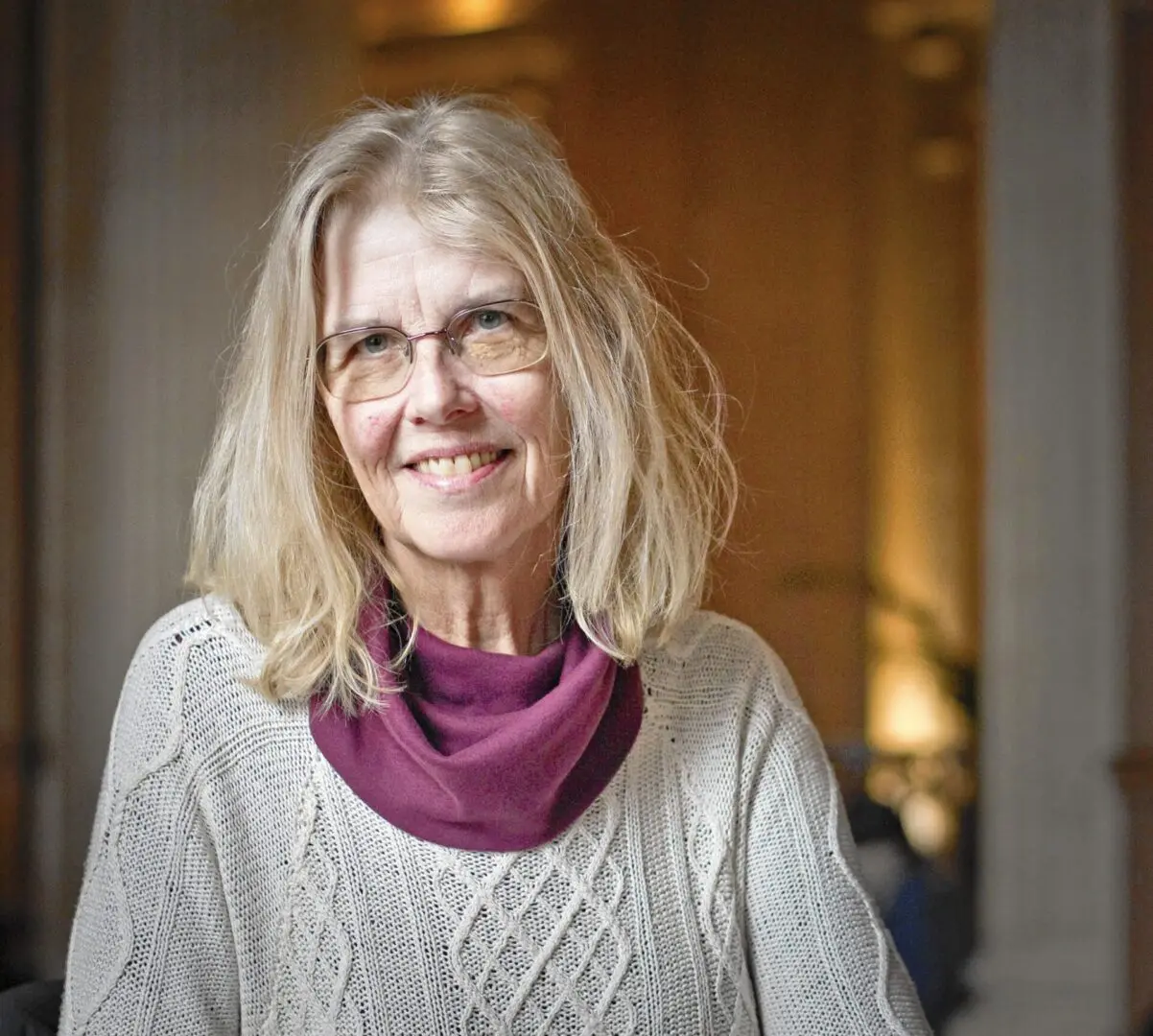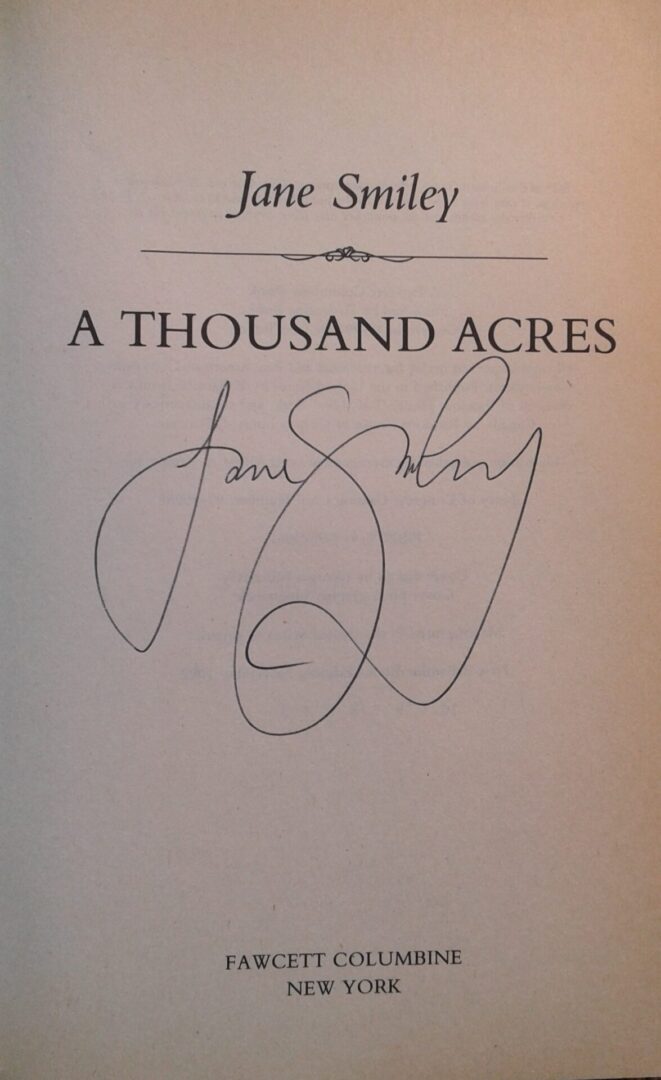Smiley, Jane: A Thousand Acres



Jane Smiley’s novel, A Thousand Acres, is often remembered as the story of King Lear transplanted in Iowa—but, dare I say it? for all his sagacity Shakespeare is left eating Smiley’s dust in the psychological sweepstakes. Lear is either too naïve or stupid or proud to divide his kingdom sensibly among his 3 daughters—and comes to a deservedly bad end. It may be conjectured that years of unopposed power have brought about his idiocy, but that is conjecture. There is no such ambiguity regarding the behavior of Farmer Larry Cook, nor of his 3 daughters. I read the novel three times, increasingly impressed with successive readings.
When I learned Smiley was to read at the AWP (Association of Writers and Writing Programs) in Chicago in 2012, I wanted to meet her though I’m no fan of conventions, literary or otherwise. They are circuses, and had it not been held in Chicago (my home town), had it not been suggested to me by the director of my writing program, and had they not paid for my registration, I would have passed it by without regret.
As it turned out, it lived down to my expectations (excepting my exchange with Smiley). We’d been requested not to pester the stars of the convention except at prescribed times, but seeing her once, a svelte pretty woman, sitting upright by herself in an audience, awaiting the start of a program, I saw my chance. I had come prepared with 2 ice-breakers: I knew one of her former students and I had brought a novel of my own to present her. I attempted to catch her eye, but she looked away (no surprise, I was intruding, however politely, however respectfully). I persisted. I mentioned her student, adding that we were peers, both teaching creative writing. She asked, unsmiling, Where? as if she might not have believed me. I mentioned the university, told her I’d read Acres three times, introduced my novel saying I hoped she’d enjoy it—and opened my copy of Acres for her scribble. Still unsmiling, seeming to consider what I said, she looked away, perhaps to ensure no one was watching, wary of opening floodgates to admirers—and making up her mind with a brief nod, she spoke in an undertone, “Let’s do it!” and we did.
Her signature, almost an illustration, is a delight (all those lovely loops and swirls)—and the encounter was easily the highlight of the convention for me.